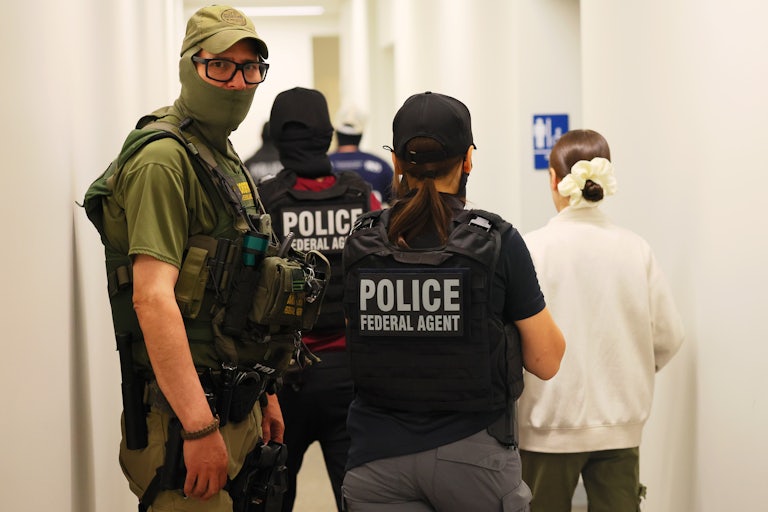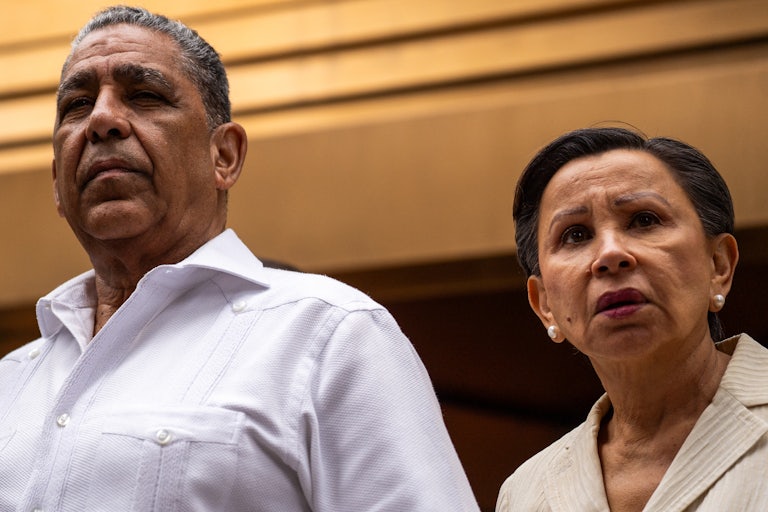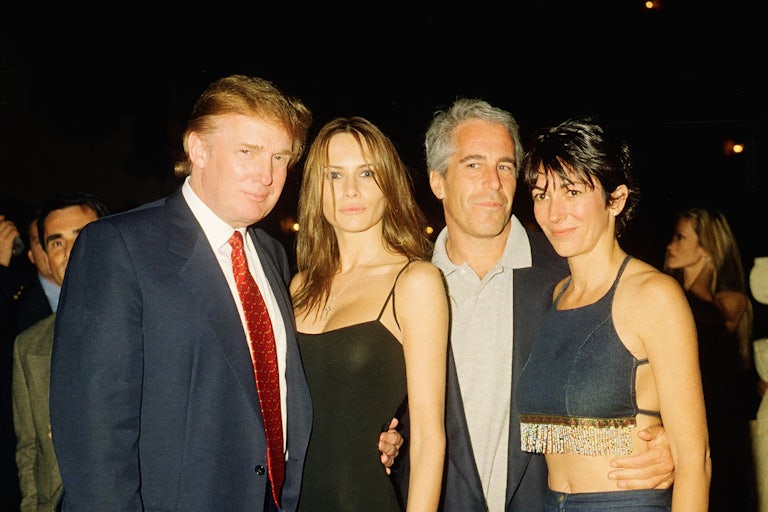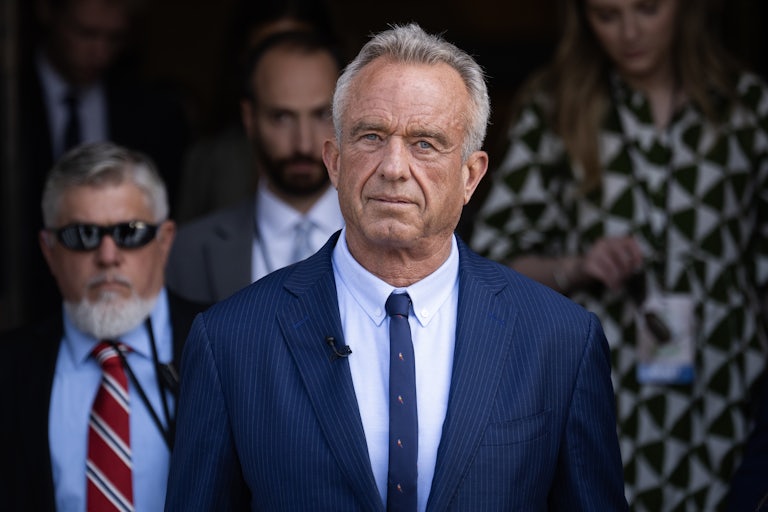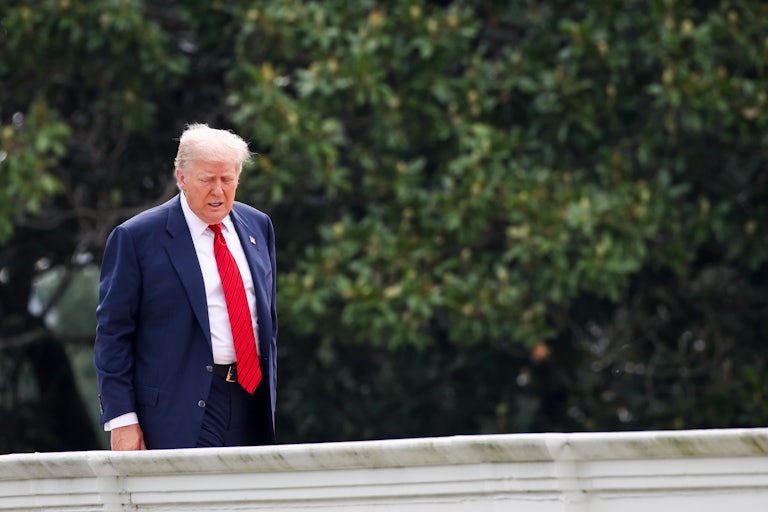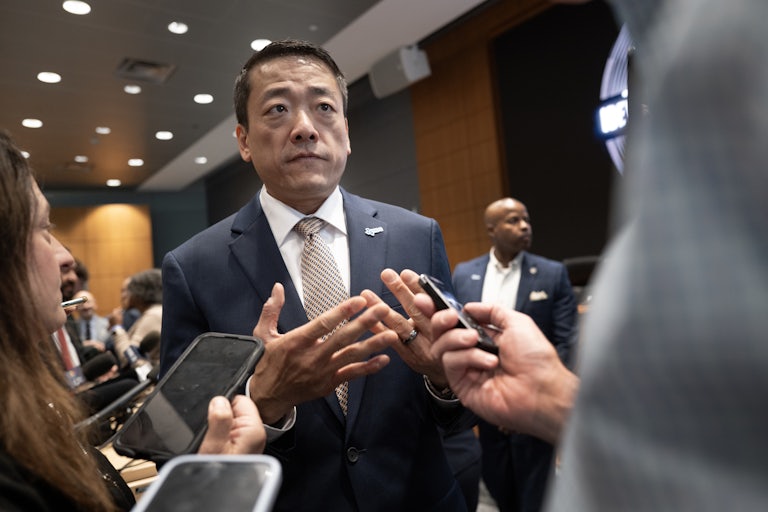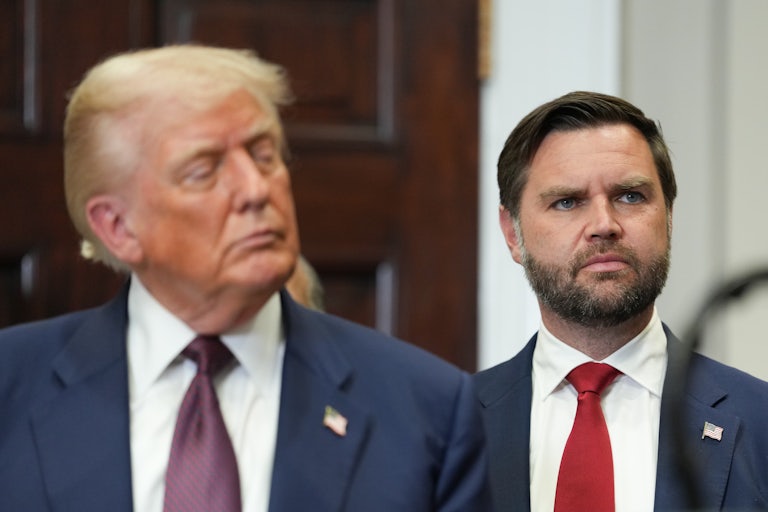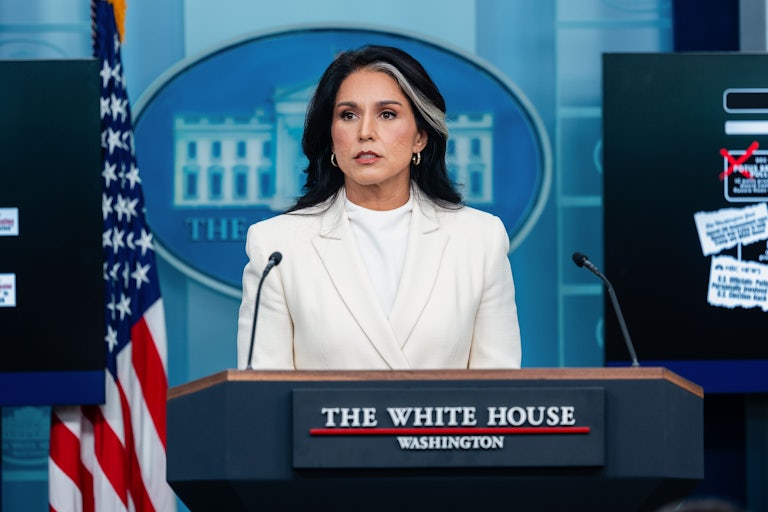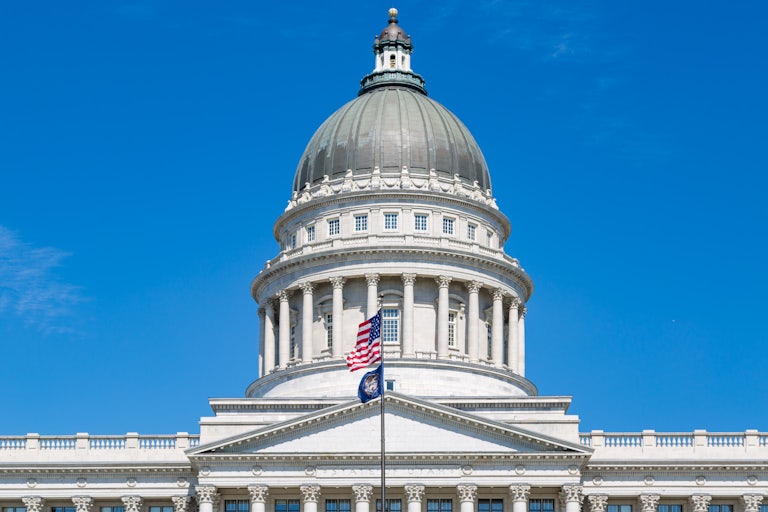Trump Fumbles Defense of RFK Jr. Gutting His Biggest Achievement
Does Donald Trump actually know what Robert F. Kennedy Jr. is doing to mRNA vaccine research?
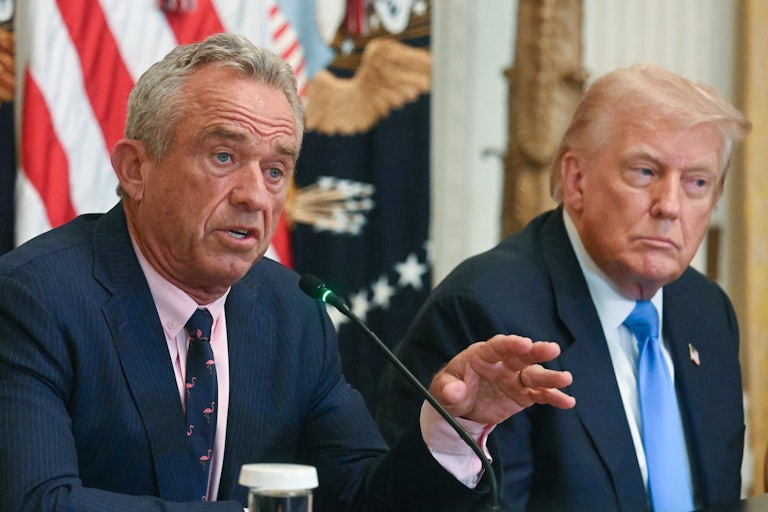
Officials in the Trump administration appear to be advancing their own agendas without informing the president.
Speaking with reporters at the White House Wednesday, Donald Trump revealed that he was not aware that Health Secretary Robert F. Kennedy Jr. had announced a $500 million divestment from mRNA vaccine research.
“You were the driving force behind Operation Warp Speed, these mRNA vaccines that are the gold standard,” a reporter asked. “Now your health secretary is pulling back all the funding for research. He’s saying that the risks outweigh the benefits, which puts him at odds with the entire medical community and with you. What is going on?”
“Research on what?” Trump asked.
“Into mRNA vaccines,” the reporter clarified.
“Well we’re going to look at that. We’re talking about it, and they’re doing a very good job, and you know that is a pass,” Trump said. “Operation Warp Speed was—whether you’re Republican or Democrat—was considered one of the most incredible things ever done in this country.”
Trump then patted himself on his back for how his first administration reacted to the Covid-19 pandemic, fast-tracking research and access to mRNA technology that ultimately provided Americans with a vaccine in record time. (This was, of course, after Trump had downplayed the effects of the virus, pushed back against medically backed health and safety precautions, and encouraged people to inject bleach into their veins.)
“That was now a long time ago, and we’re on to other things. But we are speaking about it, we have meetings about it tomorrow, tomorrow at 12 o’clock,” Trump said. “We’re looking for other answers to other problems, to other sicknesses and diseases.”
But Kennedy also pulled the federal funding for treatments to other sicknesses and diseases, nixing 22 mRNA studies because “the data show these vaccines fail to protect effectively against upper respiratory infections like COVID and flu.”
Instead, Kennedy said that his agency would shift the funding toward “safer, broader vaccine platforms that remain effective even as viruses mutate.”
The problem with that is twofold in the face of superior technology: It will result in a sacrifice of time and money. Traditional vaccines injected a weakened or dead version of a virus, triggering the body’s immune response and the development of antibodies. Researching and developing these vaccines is a “lengthy and costly” process that becomes further complicated when researchers have to respond to mutations in the virus, according to Penn Medicine.
MRNA technology, meanwhile, employs a synthetic genetic code that instructs the body to produce proteins akin to the viral protein, training the body’s immune system without ever actually exposing the individual to the disease. Once the response is initiated, the synthetic genetic sequence breaks down in the body, according to Medline Plus. The result is a “plug-and-play” vaccine technology that offers rapid development times at a lower cost to traditional vaccines.
In the years since mRNA technology debuted on the U.S. market, biomedical researchers have framed mRNA as a potential cancer treatment. But its sudden emergence in the United States prompted suspicion from anti-vaxxers, including Kennedy.
Since Kennedy took the reins at HHS, he has removed independent medical experts on the Centers for Disease Control and Prevention’s vaccine advisory panel and replaced them with vaccine skeptics. He warned against the use of the MMR vaccine during Texas’s historic measles outbreak, recommending that suffering patients instead take vitamins. And he founded his new directive for America’s health policy—the “Make America Healthy Again” report—on studies generated by AI that never existed in the real world.
